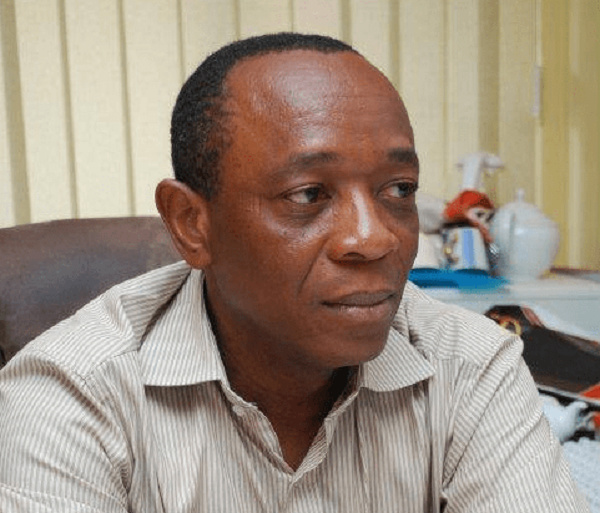
I had been meaning to discuss the rather long article smugly written by Prof. Naana J. Opoku-Agyemang, titled “Prof. Opoku-Agyemang Writes: On STEM Education in Ghana” (Ghanaweb.com 6/29/19), within the context of Part 8 of this series of articles which seeks to set the records straight on the real state of Ghana’s public education compared to that of Nigeria, while at the same time assaying the fact of whether, indeed, Nigerian academic, Prof. Austin/Augustine Uzoma Nwagbara hit on any gems of truth when the former Vice-Chancellor of the University of Lagos (UNILAG), Akoka, Nigeria, scathingly lambasted and called the general quality of Ghana’s tertiary academies into question. In his opinion, the one great mistake that the present generation of Nigerian college and university students in attendance at Ghanaian colleges and universities may be making, and the dismal career and professional opportunities that they are likely to encounter or reap once they graduate and join the mainstream of the job market will be the grim realization that they had wasted their most critical formative years in the wrong country and the wrong academies. By “wrong” or “wrongful” education or academic and professional preparation, Prof. Nwagbara clearly means that Ghanaian public education is decidedly or significantly inferior to that of Nigeria. Unfortunately, what started off as a neatly plotted disquisition on Prof. Opoku-Agyemang’s barely coherent treatise went totally off-tangent.
At any rate, I did not really expect to learn about any meaningful or useful findings from the afore-referenced article by Prof. Opoku-Agyemang, least of all, vis-à-vis any remarkably innovative strategies that she might have introduced or implemented into Ghana’s basic education system – that is, Grades K through 12 – while she was at the helm of affairs as the country’s Minister of Education for some 7 or 8 years. I find this discussion to be necessary, in view of the fact that on his assumption of stewardship, when the present Akufo-Addo-appointed Education Minister, Dr. Matthew Opoku-Prempeh, reportedly, remarked that Prof. Opoku-Agyemang had literally presided over a thoroughgoing bankrupt education system, Dr. Opoku-Prempeh was scathingly scored, largely by key operatives of the country’s main opposition National Democratic Congress (NDC) for insufferably blaspheming against former President John Dramani Mahama’s star educator.
Well, like Prof. Nwagbara who, as we have noted ad nauseam, was once the Vice-Chancellor of the University of Lagos, one of Nigeria’s flagship academies, Prof. Opoku-Agyemang was also once the Vice-Chancellor of the University of Cape Coast, Ghana’s flagship academy for the training of teachers and educators in the country. She was also perhaps the first Ghanaian woman academic to have been so named. And in some respects, Prof. Opoku-Agyemang is a pioneer of remarkable achievement. But, of course, the next most logical question the critic needs to ask is whether, indeed, Prof. Opoku-Agyemang had creditably acquitted herself in her former capacity as Vice-Chancellor of the University of Cape Coast, or hers had merely been a gender-based tokenistic appeasement aimed at muffing up the vehement rights advocacy or protestations of the feminist movement.
There clearly appears to have been palpable elements of both in her appointment as both Vice-Chancellor of the University of Cape Coast, and as an Education Minister. Prof. Opoku-Agyemang was, in all likelihood, a notch better than Mrs. Betty Mold-Iddrisu, the scandal-scarred former Attorney-General and Minister of Justice, who had also briefly served as some sort of stop-gap Education Minister, after she had made a thoroughgoing stygian mess of her portfolio as Justice Minister. I am on the latter count, of course, alluding to the legally protracted Woyome Heist, of which Mrs. Mold-Iddrisu was a key player, if not the key player, among several other key operatives of the present main opposition National Democratic Congress.
Anyway, in the news article captioned “Ghana ‘Chops Last’ in World Education Ranking” (“Whatsup News” 6/21/19), the subtitle of the referenced news story reads, “Despite Free Education.” This subtitle is rather disingenuous because President Addo Dankwa Akufo-Addo’s fee-free Senior High School System was formally implemented only some nine months ago and so could not be realistically expected to have already borne any significant fruits, in terms of the general uptick in the quality of Ghana’s basic public education system. Maybe pupils in such privately owned and run mini academies as the locally renowned Ghana International School (GIS), ought to have been surveyed separately and the results published alongside that of the publicly funded and administered system. So, the next most logical and significant question to ask is as follows: Precisely what was Prof. Naana Jane Opoku-Agyemang doing as Ghana’s Education Minister for the 7, or so, years that she held that most socio-politically critical post? We intend to find some of these answers from Prof. Opoku-Agyemang’s own afore-referenced so-called STEM article.
*Visit my blog at: kwameokoampaahoofe.wordpress.com Ghanaffairs
The views expressed by this author remain solely their own and are not to be taken as the view of the Editorial Board of www.africanewsanalysis.com
